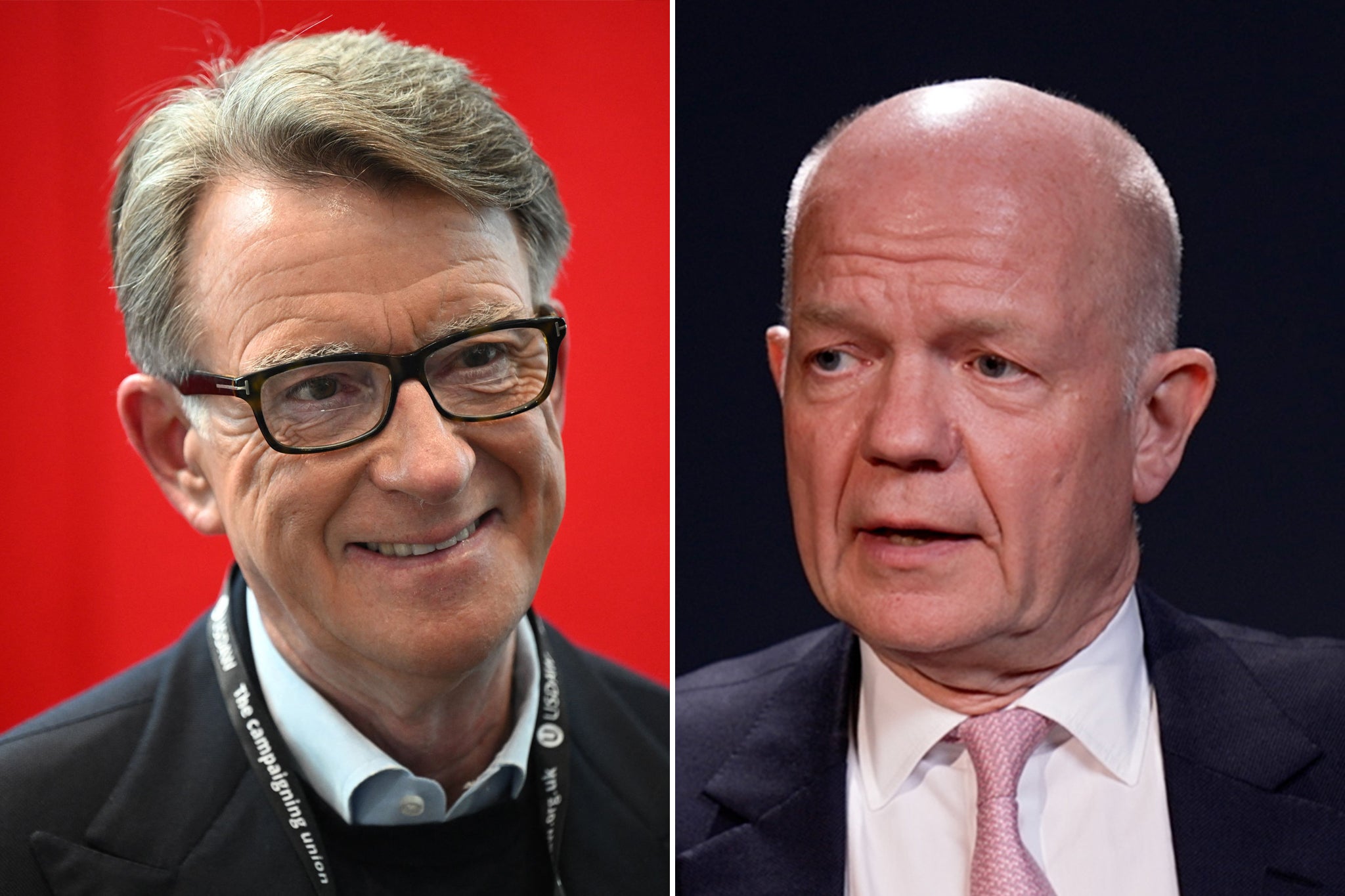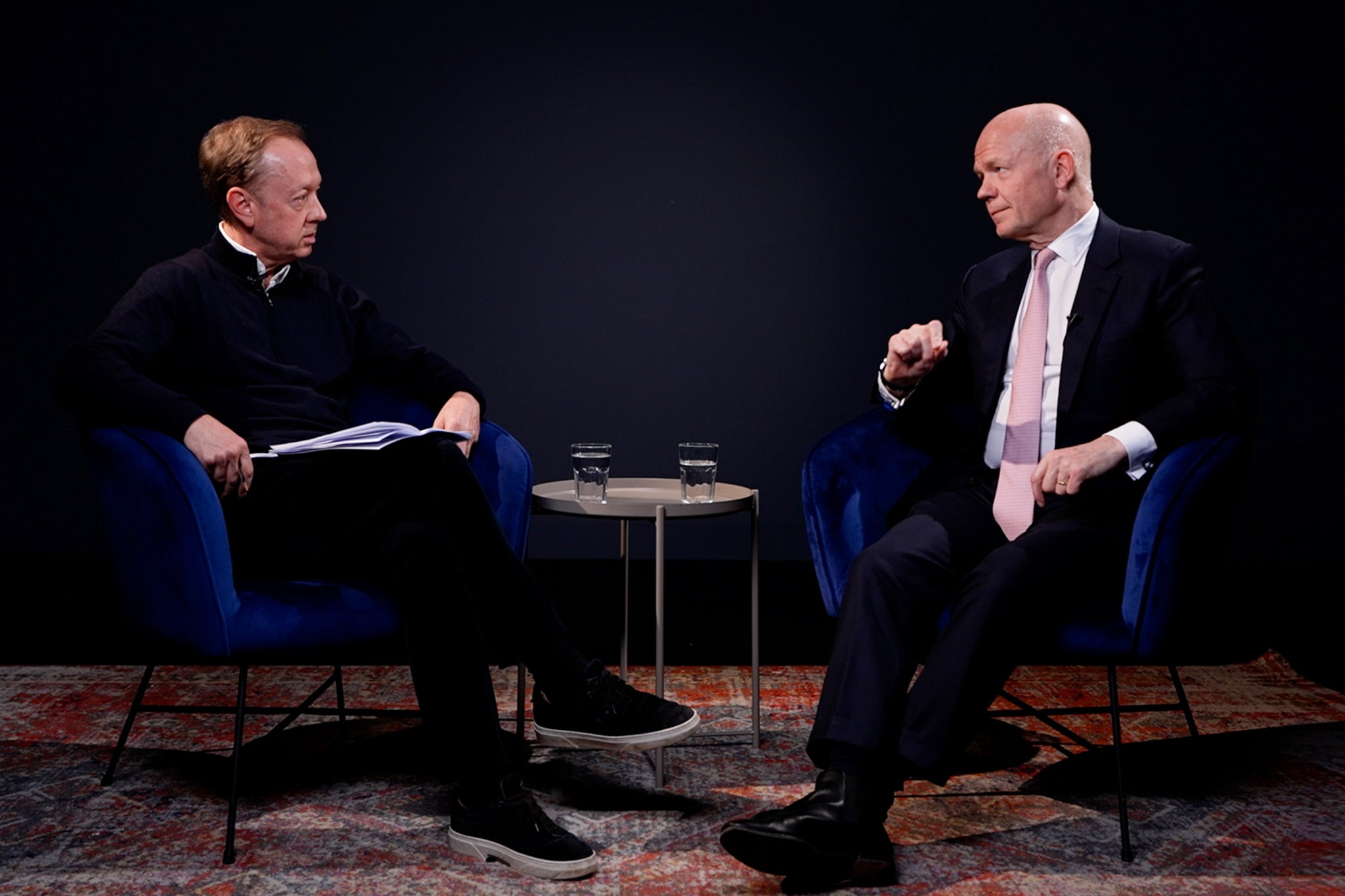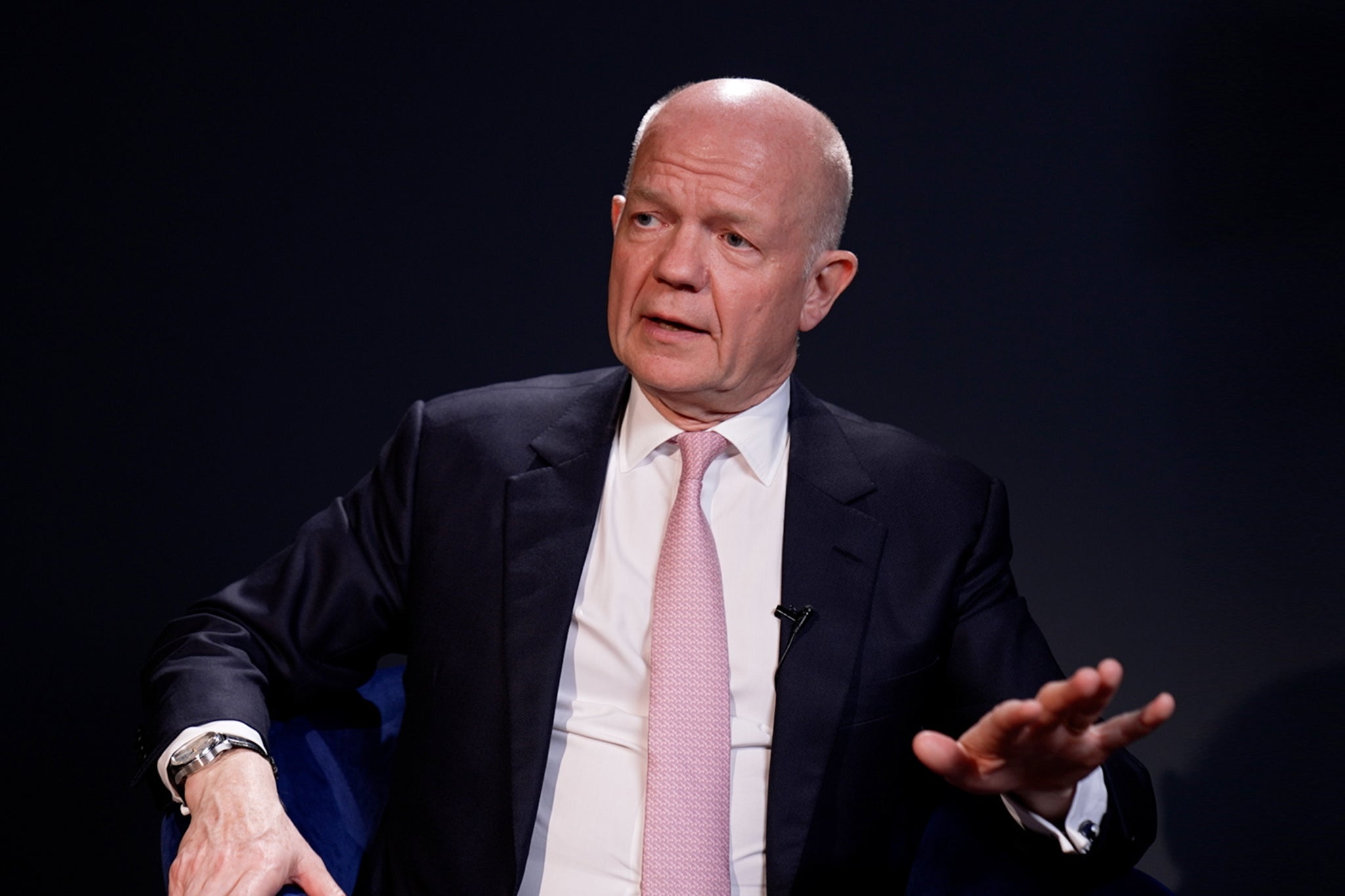William Hague beats Peter Mandelson to become Oxford University chancellor
Appointment comes after the former Tory leader told The Independent his chief rival’s claim – that the role is merely a ‘ceremonial figurehead’ – was wrong
Your support helps us to tell the story
From reproductive rights to climate change to Big Tech, The Independent is on the ground when the story is developing. Whether it's investigating the financials of Elon Musk's pro-Trump PAC or producing our latest documentary, 'The A Word', which shines a light on the American women fighting for reproductive rights, we know how important it is to parse out the facts from the messaging.
At such a critical moment in US history, we need reporters on the ground. Your donation allows us to keep sending journalists to speak to both sides of the story.
The Independent is trusted by Americans across the entire political spectrum. And unlike many other quality news outlets, we choose not to lock Americans out of our reporting and analysis with paywalls. We believe quality journalism should be available to everyone, paid for by those who can afford it.
Your support makes all the difference.William Hague has beaten Peter Mandelson to become chancellor of the University of Oxford.
It was announced on Wednesday that the former Conservative Party leader, 63, had been elected.
Earlier this month he warned former Labour spinner Lord Mandelson could not be both the UK’s next ambassador to the US and chancellor, telling The Independent that taking on both roles would be “incompatible”.
Lord Mandelson, widely seen as the leading candidate to become Britain’s new ambassador in Washington, had said he would be capable of holding both positions because the role of Oxford chancellor was merely a “ceremonial figurehead”.
But Lord Hague hit back, telling this publication’s editor-in-chief Geordie Greig the job could not be done while living on the other side of the Atlantic.

“It is important to be accessible and to be there [in Oxford],” he stressed.
“You need to be active and energetic. I am diplomatically saying it is not compatible with full-time employment in another country. Being a ‘ceremonial figurehead’ was only one part of the job. It has changed in the last 20 years.
“Going to ceremonies and being a figurehead ... also requires physical presence in the country and in the universities. But these days it involves much more ... [such as] fundraising and explaining the brilliance of Oxford. It’s really important to be active and energetic.
“It is necessary for the chancellor to be able to go there frequently.”
The contest for the coveted Oxford role had in the end come down to a fight between the two political grandees.
Lord Mandelson masterminded Sir Tony Blair’s three election victories, including in 2001 – a defeat which forced Lord Hague to resign as Tory leader.

Following his election, Lord Hague said: “I regard being elected as the chancellor of our university as the greatest honour of my life. I pay tribute to the other candidates, in particular for their commitment to the future of Oxford.
“What happens at Oxford in the next decade is critical to the success of the UK.”
He beat a number of other high-profile candidates, including Lady Elish Angiolini, in the race for the historic position. The vote came after fellow Tory Lord Patten announced that he was retiring after more than 20 years in the role.
Lord Hague will be inaugurated as chancellor early in the new year and he will serve for a term of 10 years, the university announced on Wednesday.
In a first for the process, staff and alumni voted online to elect the chancellor – a post which has been in place at Oxford for 800 years.
The chancellor is the titular head of the university. They preside over key ceremonies and chair the committee to elect the vice-chancellor, who leads the university.

In his interview with The Independent, Lord Hague also called for action over concerns about so-called “cancel culture”, where students have tried to ban speakers with controversial views.
He also said he is opposed to “trigger warnings before Shakespeare plays”. These alert the audience to violent scenes in plays such as Macbeth and Hamlet.
“For 500 years, people have been coping with those statements,” he said, warning that students must be ready to face “the debating chambers of the world” rather than engaging only in “echo chambers of like-minded people, where people stop hearing contrary opinions”.
Warning against what he described as a “snowflake generation”, he said students must be prepared for “a pretty dangerous world ... with more polarisation”.
And he said he “absolutely” stood by his claim, on the eve of Donald Trump’s US election victory, that the next president “represents a dark cult that threatens freedom everywhere”.
And he warned his party not to embrace Nigel Farage in the wake of Mr Trump’s win.
“That would be a mistake,” he said. “It’s not being conservative to advocate huge budget deficits, move against free trade, refuse to defend a democratic nation under attack [referring to Ukraine]. Neither Ronald Reagan nor Margaret Thatcher would recognise that as being conservative.”

Join our commenting forum
Join thought-provoking conversations, follow other Independent readers and see their replies
Comments